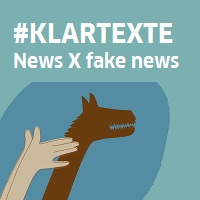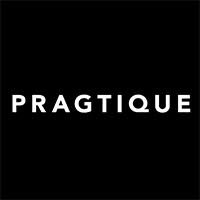
Cancer treatment quackery fuels concern among doctors, FDA

One potentially fake cancer drug sold online can actually cause malignancies. One enema machine, purported to treat ovarian cancer under the FDA banner, was never cleared for sale in the U.S., federal health officials assert.
Those products and more were targeted last week in a global crackdown on more than 1,000 websites that sell possibly dangerous and bogus medicines and medical devices. The bust, conducted by the U.S. Food and Drug Administration and Interpol, coincides with the surge of unproven cancer “cures” hawked by Internet sellers, the FDA warns.
Cancer-treatment fraud is “particularly heartless,” FDA officials say, because it preys on the desperation of patients who are tempted “to jump at anything that appears to offer a chance for a cure.” At Fred Hutchinson Cancer Research Center, some doctors are equally leery when patients ask to add claimed “natural” remedies to their treatment regimens.
“We’re quite clear: No over-the-counter herbal treatments – the things people get that are supposed to help their immune system, [or] whatever scams that people come across,” said Dr. George Georges, a hematopoietic cell transplant doctor at Fred Hutch.
“We have a very nice way of doing it. And it can sometimes take a long time to have a nice long conversation, to hear them out and talk about things,” Georges said. “But we’re very clear.”
For curious consumers, the FDA posts a running list of “fake cancer cures” that currently spans 187 oils, drinks, plants and animals parts sold by web merchants from North Carolina to Oregon. That catalogue of quackery includes “Pacific Ocean Shark Cartilage,” “Wild Yam Cream,” “Lung Cancer Tea Formula” and a product simply called “CancerGene.”
Last week, the FDA sent a warning letter to a company that offers “Generic Nolvadex” with the claim that it’s “used for treating breast cancer.” While Nolvadex is a brand name for tamoxifen, a legitimate breast cancer drug, the FDA has never approved a product called “Generic Nolvadex.” What’s more, the cited product doesn’t carry a standard “black box warning” – required by the FDA for all Nolvadex packaging to alert consumers about “serious adverse events reported in association with use of the product, such as malignancies.”
A second company drew a similar federal warning last week for selling a “colon hydrotherapy” device with claims that it can improve ovarian cancer and that it’s “registered with the FDA.” According to the FDA, however, the company “has not received [FDA] clearance or approval before offering this device for sale, which is a violation of the law.”
Both companies were ordered to correct the alleged violations within at least 15 days.
Risks to cancer patients
For cancer patients – particularly those undergoing bone marrow transplants – significant risks come with using naturopathic supplements, Georges said. That includes the chance that the products may interact in bad ways with doctor-prescribed drug regimens, perhaps triggering infections.
“We don’t want unknown factors complicating a patient’s post-transplant course,” Georges said. “I think, sometimes, it comes across that we’re not being open minded. It’s not meant in that way. It’s just meant to recognize that a lot of these herbal or naturopathic regimens are potentially powerful, have some potential effects on enzymes in the liver and elsewhere. So we have to be very cautious of that. We don’t ignore it.”
Case in point: A blood cancer patient recently told Georges he was taking a “fermented soy” supplement that claimed to reduce the risk of developing cancer.
“The product was supposed to help him not get more cancer,” Georges said. “I enlisted the help of the nutritionist, the infectious disease doctor, the nurse, the pharmacist and myself to really have series of conversations – because he was very committed to this fermented soy product. He thought this would really help him. He agreed to stop using it.”
In 2009, the FDA took action against an online company that claimed clinical trials proved its fermented soy drink protected cancer patients from the “toxic side effects” of chemotherapy and radiation. The FDA told the company that its product “is not generally recognized as safe and effective” and warned the merchant to comply with laws prohibiting false medical claims.
'Nuanced response' needed
Several Hutch doctors and researchers agreed, however, that when patients suggest adding alternative anti-cancer treatments, the ensuing conversations can never be heavy handed.
“If a patient approaches you with that kind of thing, you should not have an immediate negative reaction, like ‘Why on Earth would you do that?’ You need to have more of a nuanced response,” said Dr. Bart Scott, an oncologist with Seattle Cancer Care Alliance, Fred Hutch’s treatment arm.
If a patient suggests using a natural supplement with which Scott is not familiar, he requests a pharmacy review to ensure it won’t cause harmful side effects. If the product’s ingredients are deemed safe, Scott will allow use, he said, while offering a critical caveat: “We prefer that there’s proof that something is effective.”
But Scott has noticed that some cancer patients will order and take alternative remedies yet not stick to their doctor-prescribed medications.
“Here’s my theory: The word ‘herbal’ or ‘naturopathic’ has such meaning that [some patients] disassociate that from side effects. Just because a medication is a herbal, or just because a medication says it’s ‘all natural’ or ‘organic,’ that doesn’t mean it has less side effects,” Scott said.
“People think it’s going to be better for them, and that’s not actually true.”
Bill Briggs, a Fred Hutch News Service staff writer, previously was a contributing writer for NBCNews.com and TODAY.com, where he was responsible for breaking news and health. Prior, he was a staff writer for The Denver Post and part of the newspaper's team that earned the 2000 Pulitzer Prize for breaking news coverage of the Columbine High School massacre. He has authored two books, including, "The Third Miracle: An Ordinary Man, a Medical Mystery, and a Trial of Faith." Reach him at bbriggs@fredhutch.org.
Reprinted with permission from Fred Hutch





